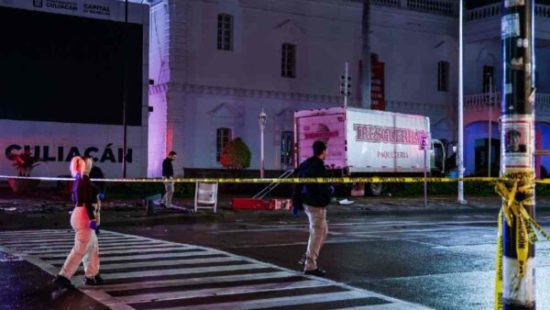About one-third of noncitizen immigrants now say they are avoiding aspects of everyday life, according to a new national survey of immigrants from The New York Times and KFF, a nonprofit that conducts polling and research about health policy. Among undocumented immigrants, that share rises to 59 percent.
Large shares of undocumented immigrants like Ms. Luna describes changes to their daily life. Most say they or someone in their family now regularly avoid travel, nearly half have avoided seeking medical care, and 40 percent say they or someone in their family has avoided going to work.
About 52 million people living in the United States are immigrants. A little over half are naturalized citizens. The rest, noncitizens, are a mix of people who are in the country legally and who are not.
The new survey provides a window into the feelings of noncitizen immigrants, both those with a temporary legal status — such as foreign students and workers — and those who are undocumented, because they entered the United States illegally or lack an active visa or other permission to reside in the country. At a moment when the administration’s aggressive immigration enforcement tactics in Chicago and elsewhere have stirred resistance among not only immigrants but growing numbers of U.S.-born citizens, the results help illuminate life as an immigrant right now in the United States.
The results come at a time when many Americans support tougher policies on illegal immigration: A Times/Siena poll in late September found that 54 percent of registered voters supported deporting immigrants who were living in the country illegally.
More than half of noncitizen immigrants now say they are worried that they or a family member will be detained or deported, an increase since 2023. Among undocumented immigrants, 75 percent say they fear detention or deportation.
About 52 million people living in the United States are immigrants. A little over half are naturalized citizens. The rest, noncitizens, are a mix of people who are in the country legally and who are not.
The new survey provides a window into the feelings of noncitizen immigrants, both those with a temporary legal status — such as foreign students and workers — and those who are undocumented, because they entered the United States illegally or lack an active visa or other permission to reside in the country. At a moment when the administration’s aggressive immigration enforcement tactics in Chicago and elsewhere have stirred resistance among not only immigrants but growing numbers of U.S.-born citizens, the results help illuminate life as an immigrant right now in the United States.
The results come at a time when many Americans support tougher policies on illegal immigration: A Times/Siena poll in late September found that 54 percent of registered voters supported deporting immigrants who were living in the country illegally.
More than half of noncitizen immigrants now say they are worried that they or a family member will be detained or deported, an increase since 2023. Among undocumented immigrants, 75 percent say they fear detention or deportation.
Even immigrants in the country legally, whether permanent residents, students or workers on visas, are taking precautions they did not before. Many are carrying their green cards, required under the law but not usually enforced, nervous that an accent or a darker complexion could make them targets.
Half of noncitizen immigrants report carrying a passport, residency card or work authorization with them, twice as many who said that in April, a sign that intensified enforcement, from Los Angeles to Chicago, New York and beyond, has rattled even those who have temporary legal status.
In interviews, many said that their sense of belonging has been replaced with vigilance and dread.








